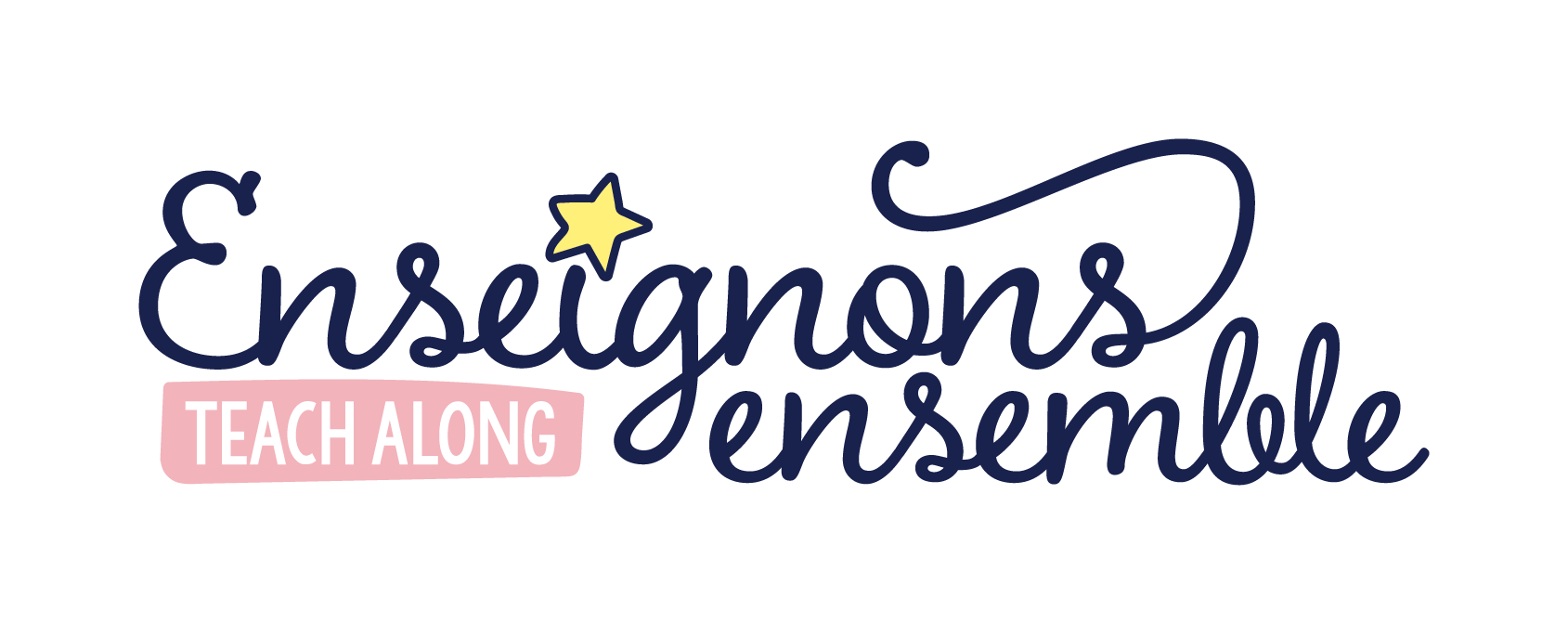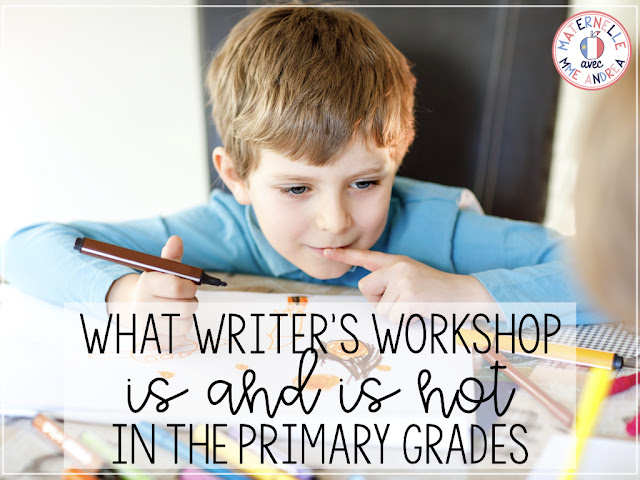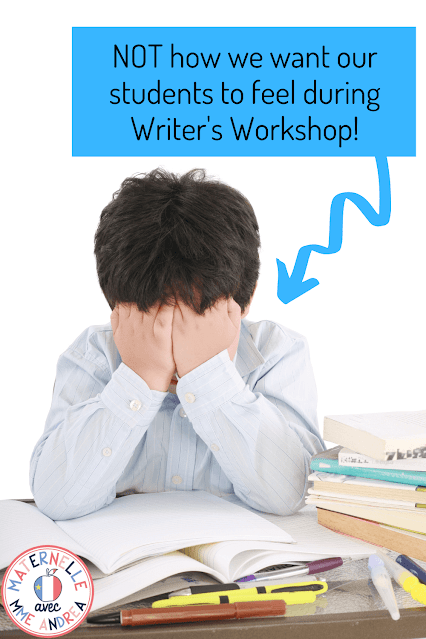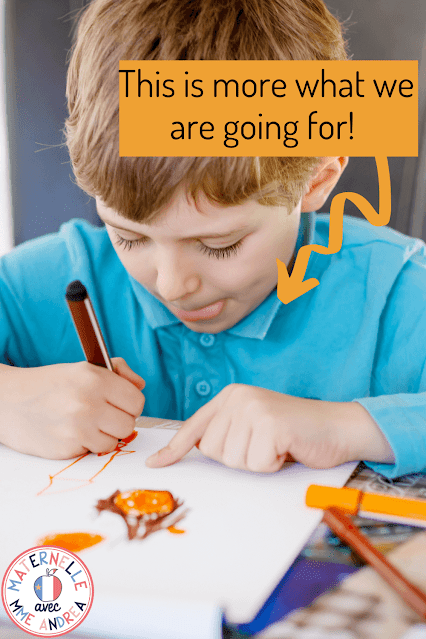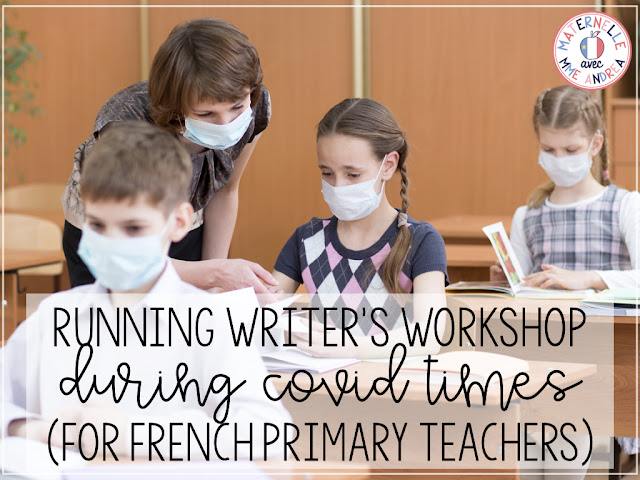If you read this blog post on this topic, then you know more about how Writer’s Workshop needs to be structured, how easy it is to use it as a framework for teaching writing with different genres and themes, and what the components of the writing process are.
In this post, though, we’re going to address some common misconceptions about what Writer’s Workshop is and what it actually isn’t.
A lot of teachers feel overwhelmed by the workshop model — understandably! We all feel intimidated by things that we don’t know much about yet.
Also, often, as teachers we forget sometimes what writing actually is in the primary grades (spoiler alert – real writing is not copying from the board or filling in predictable sentences!)
With this blog post, I’m hoping to set the record straight on some misunderstandings to help more teachers feel empowered to facilitate it in their classrooms!
WHAT WRITER’S WORKSHOP ISN’T
Let’s start with what it isn’t first. Then we can end with the empowerment of knowing exactly what it is and with ideas for effectively implementing it!
- It isn’t something you do when you have an empty block here and there. Writer’s Workshop is so much more than just writing because it incorporates several different literacy skills. It needs to be an integral part of your day!
- It’s not just responding to a prompt. This is an important writing skill, of course, and something that our students will do over and over again in their school careers…but Writer’s Workshop is more.
- It’s not simply filling in the blanks using predictable sentences. Those are valuable in their own way, but they should not be part of your Writer’s Workshop framework.
- It’s not developmentally inappropriate. Some teachers might argue that the workshop model shouldn’t be implemented until the older grades, but that couldn’t be further from the truth! Your students will naturally write based on where they are developmentally — that’s the wonderful thing!
- It’s not handwriting class. As a fine motor skill, handwriting is super important in the primary grades and needs to be taught, for sure — but it’s not what Writer’s Workshop is about.
- It’s not about getting instant results. As adults we all know how stuck in the “instant gratification” mindset many of us have become. But we can’t have that expectation in our classrooms, ever, including for writing instruction.
WHAT WRITER’S WORKSHOP IS
Now that I’ve gone over what it isn’t, let’s look at the opposite side of the coin and talk about what it actually is!
- It IS built into your regular routine. If you can swing it in your schedule, then I highly recommend doing it every day. But, if you don’t have your students 100% of the school day (if you’re doing a 50/50 model, for example), then see if you can make every other day work. Frequency and consistency are important!
- It IS about student choice! We don’t want to tell our students what to write about, because many times that causes them to disengage from writing. When we give them choice — like real writers and authors have — over what they write about, it helps our students fall in love with writing!
- It IS active. You will model proper writing skills and mechanics a ton, and your students will practice proper writing skills and mechanics a ton, and your students will learn to write by writing — as they should!
- It IS about expecting your students to be active participants. As I’m sure you know, we need to have high expectations for our students — always, in every class. You’ll want to encourage your students to stretch themselves by trying new things, practicing, and growing their brains.
- It IS understanding where students might be in the beginning. Our students will be on all different parts of the writing continuum all the time, but especially in the beginning. Even if your students are only making scribbles at the start, it’s still wonderful!
- It IS a process! Remember that your students won’t master writing in a day, in a week, or in a month. You all need patience while they learn and practice over an extended period of time!
And there you have it! I hope these distinctions cleared up any misconceptions you might have had about Writer’s Workshop and help you to feel empowered to try it in your classroom.
It will be so good for your students to have this structure to their writing instruction — and it makes your job easier!
Be sure to also check out my blog post all about adapting Writer’s Workshop for COVID, including social distancing and virtual teaching.
Looking for more writing tips? Fill out your name and email in the box below, and I’ll email you my FREE guide to writer’s workshop for French primary teachers!

